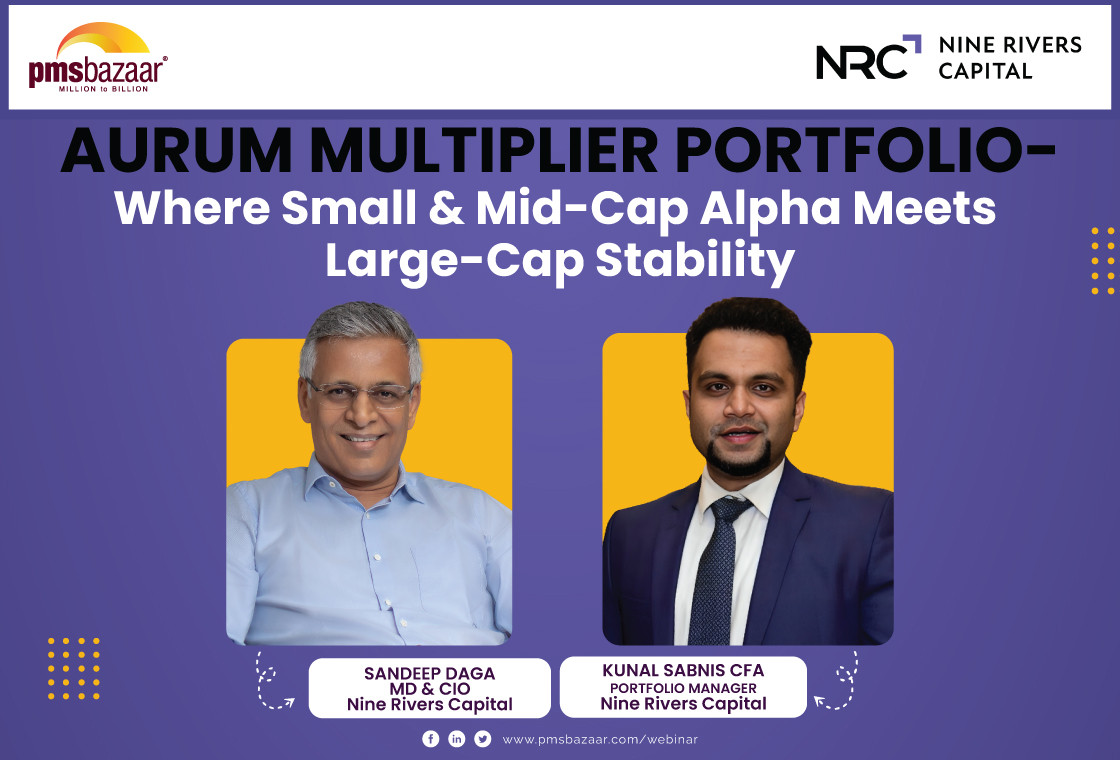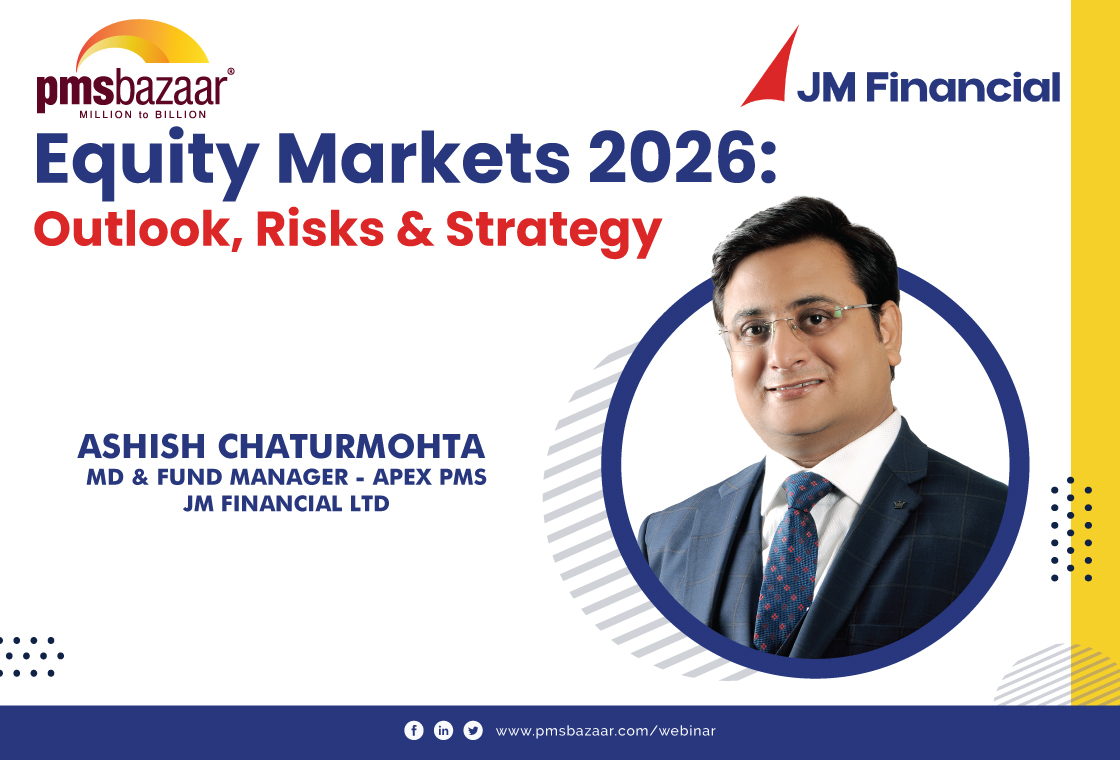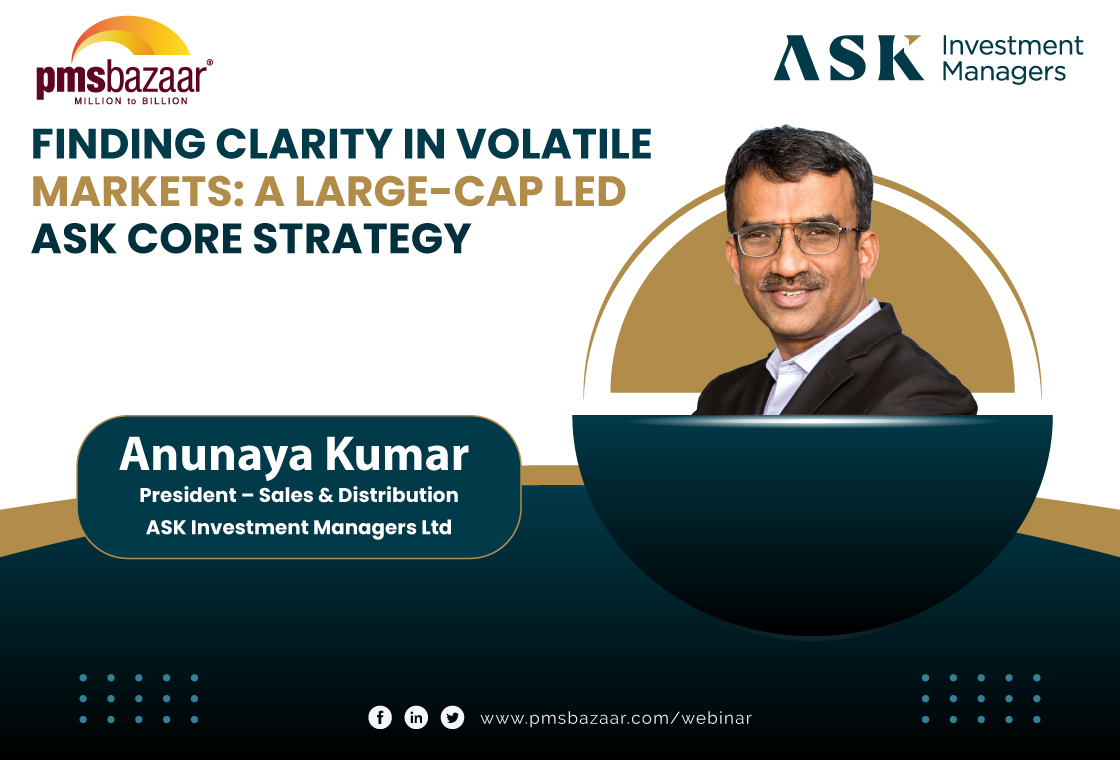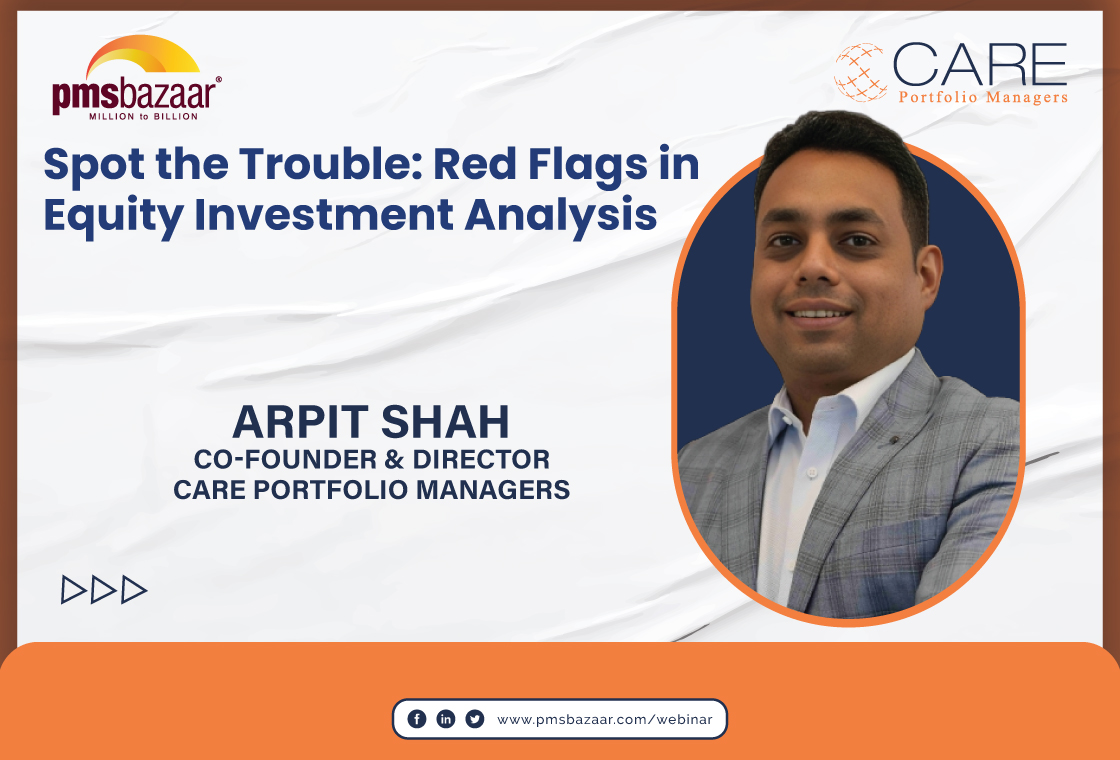It goes without saying that when it comes to money, everyone looks for growth. While traditional low-risk options are part of almost everyone’s portfolio, there are always other options worth exploring. These investments go beyond the scope of traditional financial investments and can bring in better-than-expected yields. The Indian derivatives market is in existence for a very long time. Today, financial derivatives have become increasingly popular and most commonly used in the world of finance. This has grown with so phenomenal speed all over the world that now it is called the derivatives revolution. In this blog, we discuss the derivatives market and how it works. Based on this backdrop PMS Bazaar conducted a webinar titled, “Opportunites in Equity Alternative Investments”. The keynote speaker was Mr. Nandik Malik, Head - of Equity Alternates, ICICI Prudential AMC Ltd. Mr. Malik discussed in detail the derivatives market, ICICI’s alternate investment strategies, and future opportunities in the derivatives market.

The difference between the derivatives and equity
Derivatives are financial contracts that derive their value from an underlying asset such as stocks, commodities, currencies, etc., and are set between two or more parties, where the value of the derivative is derived from price or value fluctuations of the underlying assets. Imagine that the market price of an equity share may go up or down. You may suffer a loss owing to a fall in the stock value. In this situation, you may enter a derivative contract either to make gains by placing an accurate bet. Or simply cushion yourself from the losses in the spot market where the stock is being traded.
Taking an example, let’s say a stock is valued at INR 100. If the stock moves to 110, you make a profit, likewise, if a stock falls to INR 90, you make a loss. Derivates, unlike equity, take the view that the stock may move from INR 100 to INR 110 and not beyond, or it can also take the view that the stock will go down from INR 100 to INR 95 and not beyond. In this case, the stock would be a binary game in which you take a position and wait for it to go up. In derivatives, you can take a position not just in the direction but also in the quantum of the move. Derivatives comprise instruments such as calls and puts. In the call, you take a view that the underlying will move up, and also the quantum of move that could happen, whereas, in put, you take a view that the underlying will down, and also the quantum of move that could happen.
How does the derivatives market work?
Derivatives are contracts that derive values from underlying assets or securities. Derivatives serve the purpose of risk management. If you are having trouble understanding the definition of derivatives trading, try using an example. Consider a buyer of a put option who has purchased a derivative contract. He could decide to keep that option until the day it is exercised, at which point he would sell the necessary number of assets at the strike price. However, this is advisable only if that person is making a profit by executing the contract. For instance, if the asset's spot price is INR100 and the option's strike price is INR120, exercising the option makes sense for the individual selling the item since he can sell it for more money than the market price.
Holding the put option contract at INR120 is not advisable, though, if the spot price was close to INR150 because the spot market can provide a greater rate. The put option holder can now decide whether to keep holding the contract and risk losing the entire option premium, or he can sell the option contract on the open market for a premium (albeit one lower than the premium he paid to purchase the put option), cutting his losses.
Valuations between the Indian equity market versus the global equity market
According to Mr. Nandan Malik, “Valuations in the Indian market will be higher and shall remain higher for a longer length of time. This is owing to multiple factors. More global funds are allocating assets to India. And some of how asset allocation is happening is as simple as population, or as simple as GDP growth. Therefore, in case India’s share of GDP goes to 5%, funds will flow in automatically.”
Hence, valuations in India will remain higher versus the global market, since our share of GDP is growing and also that India has political stability, unlike Europe.
Why are equity alternative investments better than direct normal equity investments?
Alternatives rely less on broad market trends and more on the strength of each specific investment; hence, adding alternatives can potentially reduce the overall risk of a portfolio. It allows the investors to look towards other asset classes to invest in financial instruments that can offer higher returns even when they have a risk profile.
Investing in derivatives enables you to remain protected from the volatility of other asset classes. For instance, you can buy stocks in the equities market and enter into a derivatives contract with the same underlying assets. Investors use derivatives as a mechanism to speculate in the market and generate profits. Also, in the case of HNI customers, they prefer steady and stable returns and do not opt for absolute risk. Hence, for them, the derivatives market is a good option, especially for a fund that has a balanced portfolio with stable returns.
Mr. Nandik Malik discussed all the above topics in detail and spoke in-depth about their strategies and funds. For more insights on this webinar, please click the appended link.
Get access to rich data and analytics of PMS & AIF by subscribing to us. Join the 47000+ investors & experts now: Subscribe NOW
Recent Blogs

Aurum Multiplier Portfolio - Where Small and Mid-Cap Alpha Meets Large-Cap Stability
PMS Bazaar recently organized a webinar titled “Aurum Multiplier Portfolio - Where Small and Mid-Cap Alpha Meets Large-Cap Stability,” which featured Mr. Sandeep Daga, MD& CIO, Nine Rivers Capital and Mr. Kunal Sabnis, Portfolio Manager, Nine Rivers Capital. This blog covers the important points shared in this insightful webinar.

Flat Markets, Wide Outcomes: How 484 PMS Strategies Performed in Dec 2025
December 2025 was a month where market returns stayed close to flat, with the Nifty 50 TRI at -0.28% and the BSE 500 TRI at -0.24%.

Equity Markets 2026: Outlook, Risks and Strategy
PMS Bazaar recently organized a webinar titled “Equity Markets 2026: Outlook, Risks and Strategy,” which featured Mr. Ashish Chaturmohta, MD & Fund Manager – APEX PMS, JM Financial Limited. This blog covers the important points shared in this insightful webinar.

MICRO CAPS: The Dark Horses of the Indian Equity Market
PMS Bazaar recently organized a webinar titled “MICRO CAPS: The Dark Horses of the Indian Equity Market,” which featured Mr. Rishi Agarwal and Mr. Adheesh Kabra, both Co-Founders and Fund Managers, Aarth AIF. This blog covers the important points shared in this insightful webinar.

Finding Clarity in Volatile Markets: A Large-Cap Led ASK CORE Strategy
PMS Bazaar recently organized a webinar titled “Finding Clarity in Volatile Markets: A Large-Cap Led ASK CORE Strategy,” which featured Mr.Anunaya Kumar, President – Sales and Distribution ASK Investment Managers Limited. This blog covers the important points shared in this insightful webinar.
.jpg)
Passively Active Investing — A Modern Investor’s Lens on ETF-Based PMS
PMS Bazaar recently organized a webinar titled “Passively Active Investing — A Modern Investor’s Lens on ETF-Based PMS,” which featured Mr. Karan Bhatia, Co-Founder and Co-Fund Manager , Pricebridge Honeycomb ETF PMs. This blog covers the important points shared in this insightful webinar.

Spot the Trouble: Red Flags in Equity Investment Analysis
PMS Bazaar recently organized a webinar titled “Spot the Trouble: Red Flags in Equity Investment Analysis,” which featured Mr. Arpit Shah, Co-Founder & Director, Care Portfolio Managers. This blog covers the important points shared in this insightful webinar.

Long-Only AIFs Rebound Sharply in October; Long-Short Strategies Lag Despite Lower Volatility
106 long-only AIFs averaged 3.68% vs 32 long-short AIFs at 2.7%; only 24–31% of funds beat key indices

